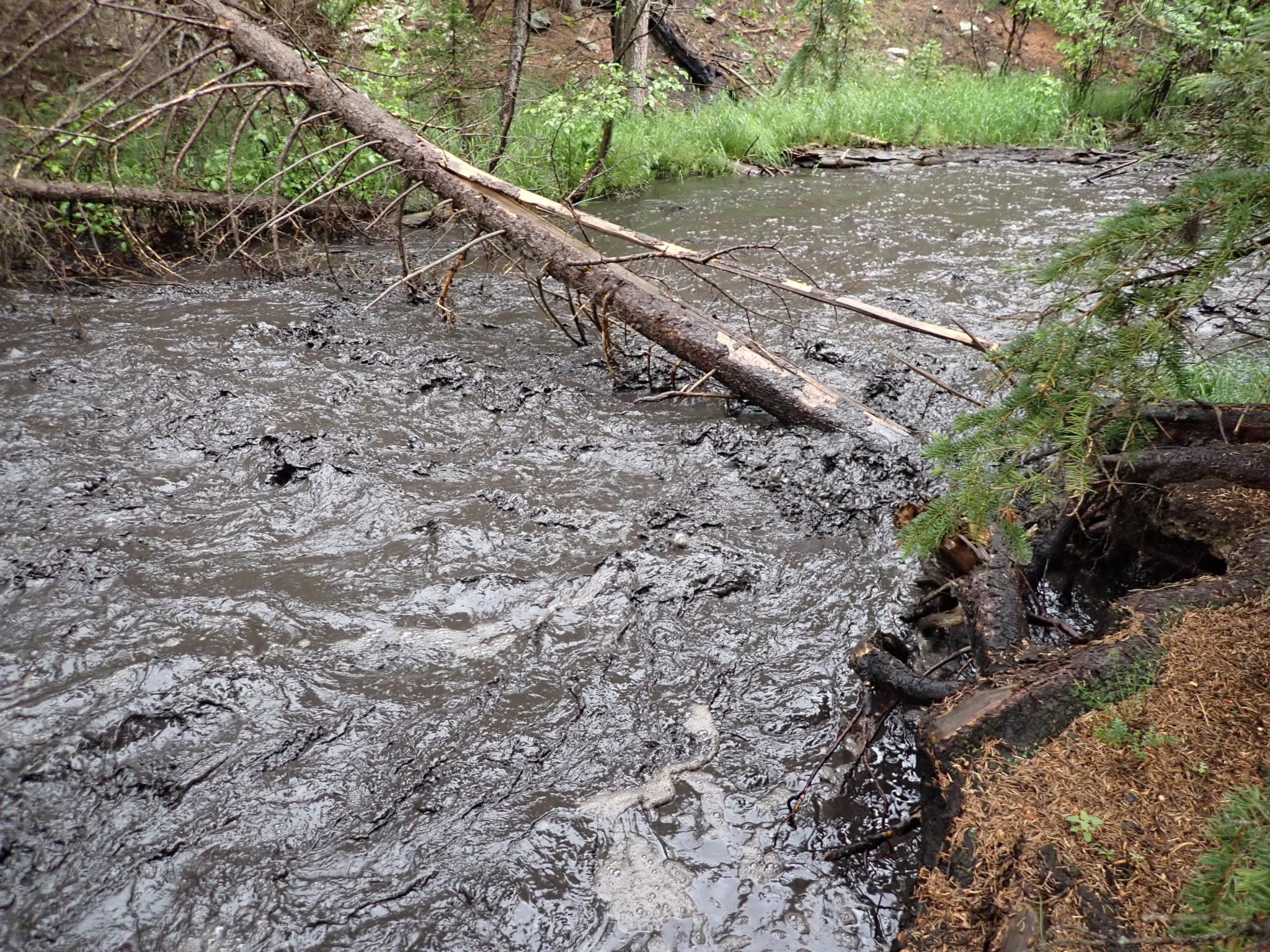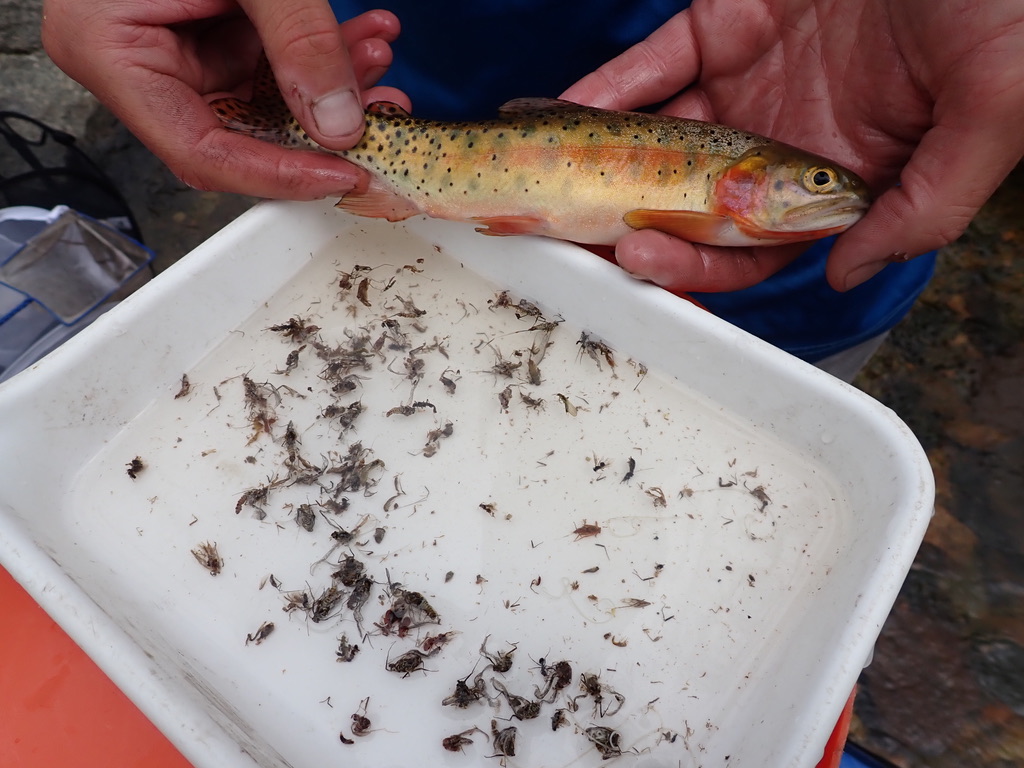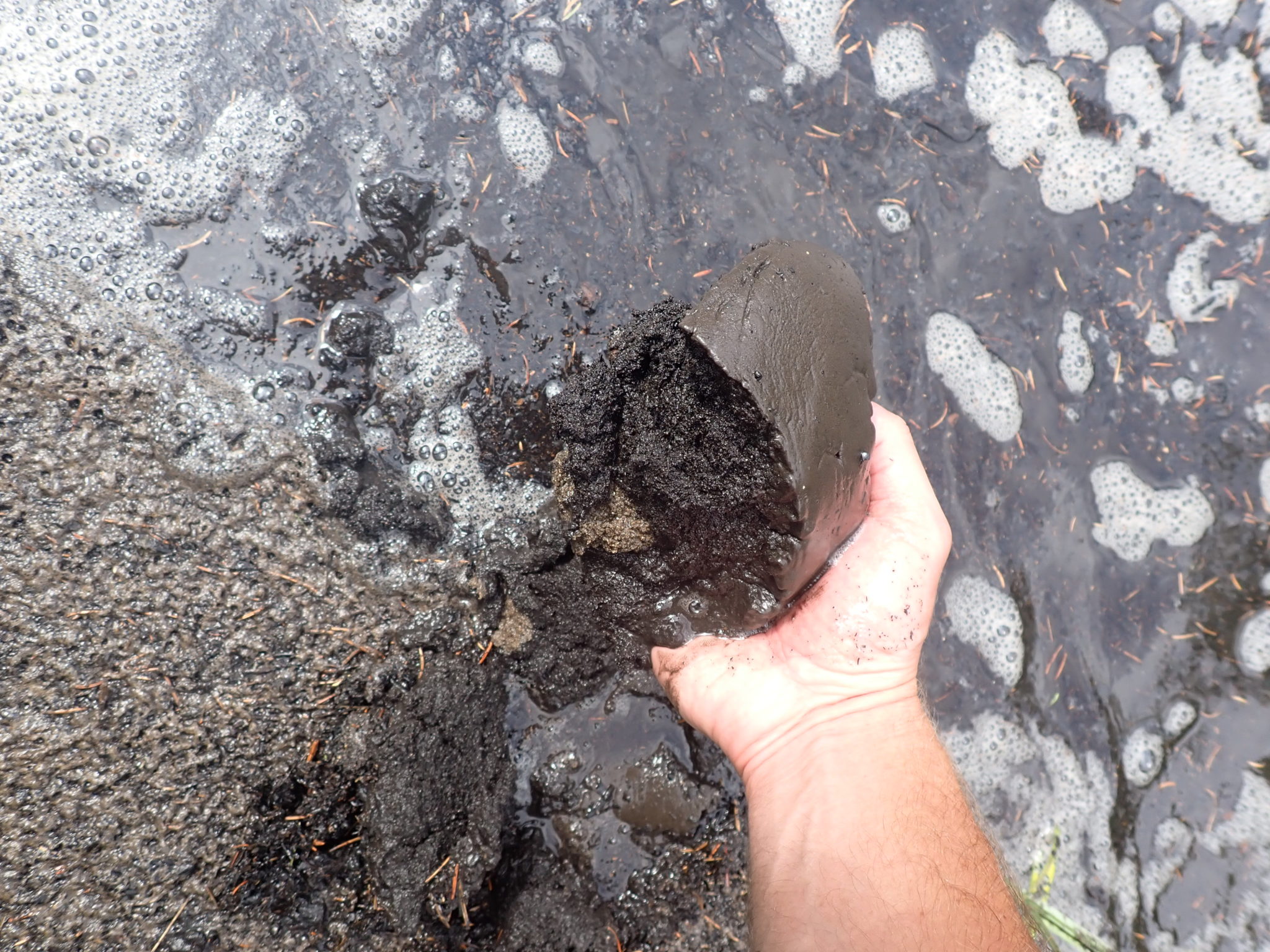
A burned stream at North Fork Joe Wright Creek is among the research sites being studied. Photo: Yoichiro Kanno/CSU
A team of scientists from Colorado State University’s Warner College of Natural Resources is studying how the Cameron Peak Fire has changed stream environments and whether trout populations have been affected.
Associate Professor Yoichiro Kanno and Assistant Professor Dan Preston are leading this effort to study food webs at 10 sites and trout populations at 20 sites in streams in and around Little Beaver Creek near CSU’s Mountain Campus, Rocky Mountain National Park and Roosevelt National Forest. The sites include areas where the fire burned severely, and others not affected by the fire.



Photos: Dan Preston/CSU
Preston said they are studying links between aquatic and riparian habitats, including changes in terrestrial insects that provide food for trout and emerging aquatic insects that provide food for terrestrial predators.
Kanno said he’s noticed a striking difference between burned and unburned sites in the abundance of spiders, which specialize in eating aquatic insects that emerge from the stream.
“Spiders weave webs around branches in the riparian zone and over the stream and, in some places, there are very few branches and consequently few riparian spiders in the burned sites,” he said.
Preston said the large amounts of ash and sediment in the streams – especially with recent flashfloods – create disturbances for aquatic life in the streams.
“We’re not sure how that’s affecting invertebrates and fish, but we are capturing what takes place as the disturbances are happening,” he said. “We will look at the recovery trajectory in the coming years. Over time, these streams will recover.”
Kanno and Preston hope to complete data collection on this project by the end of August.
Kanno and Preston are researchers in the Department of Fish, Wildlife and Conservation Biology.